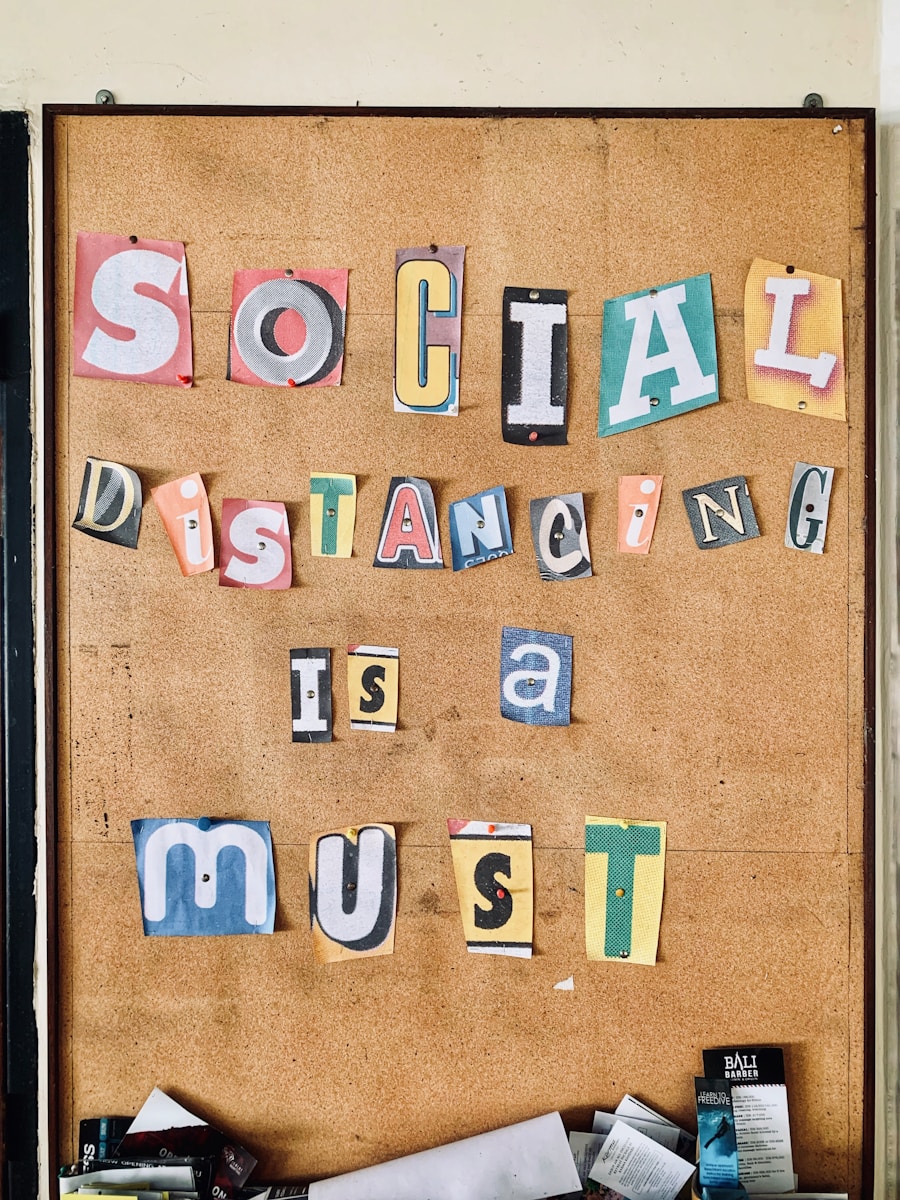Sociology is the systematic study of society, social relationships, and social institutions. It seeks to understand how human behavior is shaped by social contexts and how individuals interact within various social structures. The discipline emerged in the early 19th century, influenced by the rapid changes brought about by the Industrial Revolution, urbanization, and the rise of modern nation-states.
Pioneers such as Auguste Comte, Karl Marx, Emile Durkheim, and Max Weber laid the groundwork for sociological inquiry, each contributing unique perspectives that continue to inform contemporary sociological thought. At its core, sociology examines the patterns of social relationships and the ways in which these patterns influence individual behavior and societal outcomes. It encompasses a wide range of topics, from family dynamics and education systems to crime, religion, and economic systems.
This exploration not only enhances our understanding of human behavior but also provides insights into addressing pressing social issues.
Key Takeaways
- Sociology is the study of human society and social behavior, focusing on understanding social patterns and structures.
- Theoretical perspectives in sociology include functionalism, conflict theory, and symbolic interactionism, each offering different ways to analyze and understand social phenomena.
- Social institutions and structures, such as family, education, and government, play a crucial role in shaping individuals’ behavior and interactions within society.
- Social stratification and inequality are pervasive in society, leading to disparities in wealth, power, and opportunities among different social groups.
- Culture and society are interconnected, with culture shaping society and society influencing the development of culture.
Theoretical Perspectives in Sociology
Theoretical perspectives in sociology serve as lenses through which sociologists analyze social phenomena. Among the most prominent are functionalism, conflict theory, and symbolic interactionism. Functionalism views society as a complex system whose parts work together to promote stability and social order.
This perspective emphasizes the importance of social institutions—such as family, education, and religion—in maintaining societal equilibrium. For instance, functionalists argue that education serves not only to impart knowledge but also to socialize individuals into societal norms and values, thereby contributing to social cohesion. In contrast, conflict theory posits that society is characterized by inherent inequalities and power struggles.
Rooted in the works of Karl Marx, this perspective highlights how economic disparities shape social relations and institutions. Conflict theorists argue that dominant groups maintain their power by exploiting marginalized populations, leading to social unrest and change. For example, the labor movement can be understood through this lens as workers organized to challenge the exploitation they faced in industrial settings.
This perspective underscores the dynamic nature of society, where conflict can lead to significant social transformations. Symbolic interactionism offers a more micro-level analysis of society, focusing on the meanings individuals attach to their interactions and experiences. This perspective emphasizes the role of symbols—such as language, gestures, and rituals—in shaping social reality.
For instance, Erving Goffman’s concept of “dramaturgy” illustrates how individuals perform roles in everyday life, akin to actors on a stage. This approach reveals how personal identities are constructed through social interactions and how these identities can shift depending on context.
Social Institutions and Structures

Social institutions are established systems that organize society’s fundamental activities and provide frameworks for behavior. Key institutions include family, education, religion, economy, and government. Each institution plays a crucial role in shaping individual experiences and societal norms.
Social Stratification and Inequality
| Country | Gini Coefficient | Income Inequality |
|---|---|---|
| United States | 0.41 | High |
| Sweden | 0.27 | Low |
| Brazil | 0.53 | Very High |
Social stratification refers to the hierarchical arrangement of individuals within society based on various factors such as wealth, income, education, race, and gender. This system of inequality is pervasive across cultures and has profound implications for individuals’ life experiences. Sociologists study stratification to understand how these hierarchies are maintained and challenged over time.
One common framework for analyzing stratification is the concept of class, which categorizes individuals based on their economic resources and opportunities. In many societies, class divisions are closely linked to educational attainment. Higher levels of education often correlate with better job prospects and higher income levels.
However, access to quality education is frequently stratified along socioeconomic lines. For instance, children from low-income families may attend underfunded schools with fewer resources, limiting their opportunities for upward mobility. This cycle of disadvantage perpetuates existing inequalities across generations.
Race and ethnicity also play significant roles in social stratification.
For example, studies have shown that people of color often face discrimination in hiring practices, leading to disparities in employment opportunities and income levels.
Additionally, residential segregation can result in unequal access to quality education and healthcare services based on race or ethnicity. Gender is another critical dimension of social stratification. Despite advancements in gender equality, women continue to face disparities in pay and representation in leadership positions across various sectors.
The gender pay gap remains a persistent issue; women often earn less than their male counterparts for similar work. Furthermore, societal expectations regarding gender roles can limit opportunities for both men and women in different ways.
Culture and Society
Culture encompasses the shared beliefs, values, norms, customs, and artifacts that characterize a group or society. It shapes individuals’ identities and influences their behaviors within a social context. Sociologists study culture to understand how it is created, maintained, and transformed over time.
Cultural practices can vary widely across societies; what is considered acceptable or taboo in one culture may be viewed differently in another. Language is a fundamental component of culture that facilitates communication and the transmission of knowledge. It serves not only as a means of expressing thoughts but also as a vehicle for cultural identity.
Linguistic diversity reflects cultural diversity; different languages carry unique worldviews and ways of understanding reality. The preservation of indigenous languages is crucial for maintaining cultural heritage and identity in an increasingly globalized world. Norms are another essential aspect of culture that dictate acceptable behavior within a society.
They can be classified into two categories: folkways (informal norms) and mores (formal norms). Folkways govern everyday behavior—such as table manners—while mores are tied to moral values—such as laws against theft or violence. Violating mores often results in severe consequences due to their foundational role in maintaining social order.
Cultural change occurs through various processes such as diffusion (the spread of cultural elements from one society to another), innovation (the creation of new cultural practices), and globalization (the interconnectedness of cultures worldwide). Globalization has led to increased cultural exchange but has also raised concerns about cultural homogenization—the loss of unique cultural identities in favor of dominant global cultures.
Social Change and Globalization

Historical Examples of Social Change
One prominent example of social change is the civil rights movement in the United States during the 1950s and 1960s. Activists challenged systemic racism through protests, legal challenges, and grassroots organizing efforts aimed at achieving equality for African Americans. This movement not only transformed laws regarding segregation but also shifted societal attitudes toward race relations in America.
Globalization and Social Change
Globalization has emerged as a powerful force driving social change in contemporary society. It refers to the increasing interconnectedness of economies, cultures, and populations across national boundaries. While globalization has facilitated economic growth and cultural exchange, it has also led to challenges such as cultural homogenization and economic inequality on a global scale.
The Digital Age and Social Change
The rise of digital technology has further accelerated globalization by enabling instant communication and access to information worldwide. Social media platforms have become tools for activism; movements such as #MeToo or Black Lives Matter have gained traction through online organizing efforts that transcend geographical boundaries. However, this interconnectedness also raises questions about privacy rights and the impact of misinformation on public discourse.
Research Methods in Sociology
Sociological research employs various methods to gather data and analyze social phenomena systematically. These methods can be broadly categorized into qualitative and quantitative approaches. Qualitative research focuses on understanding human behavior through in-depth interviews, participant observation, or content analysis of cultural artifacts.
This approach allows researchers to explore complex social dynamics by capturing individuals’ lived experiences. For instance, ethnographic studies involve immersing oneself in a community or group to observe behaviors and interactions firsthand. Such research can reveal insights into subcultures or marginalized communities that may not be captured through traditional survey methods.
Qualitative research emphasizes context and meaning-making processes rather than numerical data alone. Quantitative research involves collecting numerical data that can be analyzed statistically to identify patterns or correlations among variables. Surveys are a common quantitative method used in sociology; researchers design questionnaires to gather information from large samples about attitudes, beliefs, or behaviors related to specific topics.
For example, national surveys on public opinion regarding healthcare policies provide valuable insights into citizens’ perspectives on pressing issues. Mixed-methods research combines both qualitative and quantitative approaches to provide a more comprehensive understanding of social phenomena. By integrating different data sources, researchers can triangulate findings and enhance the validity of their conclusions.
Applying Sociology to Real-World Issues
Sociology offers valuable insights into addressing real-world issues by providing frameworks for understanding complex social dynamics. For instance, sociological perspectives can inform policies aimed at reducing poverty or addressing systemic inequalities within education systems. By analyzing the structural factors contributing to these issues—such as economic disparities or discriminatory practices—policymakers can develop targeted interventions that promote equity.
In public health contexts, sociology plays a crucial role in understanding health disparities among different populations. Sociologists examine how factors such as socioeconomic status, race/ethnicity, or geographic location influence health outcomes. This knowledge can guide public health initiatives aimed at improving access to healthcare services for marginalized communities.
Moreover, sociology contributes significantly to discussions surrounding criminal justice reform by highlighting issues related to systemic bias within law enforcement practices or sentencing disparities based on race or class. By examining the social contexts that contribute to crime—such as poverty or lack of access to education—sociologists advocate for evidence-based policies that address root causes rather than merely punitive measures. In an increasingly interconnected world marked by globalization challenges—such as climate change or migration—sociology provides critical insights into collective action movements aimed at fostering social change on a global scale.
Understanding how cultural values shape responses to these issues can inform strategies for mobilizing communities toward sustainable solutions. Through its diverse methodologies and theoretical frameworks, sociology equips individuals with tools for critically analyzing societal structures while advocating for positive change across various domains—from education reform to public health initiatives—ultimately contributing toward building more equitable societies.
If you are interested in exploring the relationship of sociology with other social sciences, you may find the article The Relationship of Sociology with Other Social Sciences to be insightful. This article delves into how sociology interacts with disciplines such as psychology, anthropology, and economics, highlighting the interconnected nature of the social sciences. It provides a comprehensive overview of how sociology contributes to and is influenced by other fields of study, offering a deeper understanding of the complexities of human society.
FAQs
What is sociology?
Sociology is the study of society, social behavior, and the interactions and relationships between individuals and groups within a society.
What are the key concepts in sociology?
Key concepts in sociology include social structure, social institutions, socialization, social stratification, culture, and social change.
What are the major theoretical perspectives in sociology?
The major theoretical perspectives in sociology include functionalism, conflict theory, symbolic interactionism, and feminist theory.
What are some important topics studied in sociology?
Important topics studied in sociology include race and ethnicity, gender, social class, family, education, religion, crime and deviance, and globalization.
What are the methods used in sociological research?
Sociological research methods include surveys, interviews, participant observation, experiments, and analysis of existing data and documents.
What are the career options for someone with a degree in sociology?
Career options for someone with a degree in sociology include social work, counseling, human resources, market research, public policy analysis, and community organizing.
























+ There are no comments
Add yours